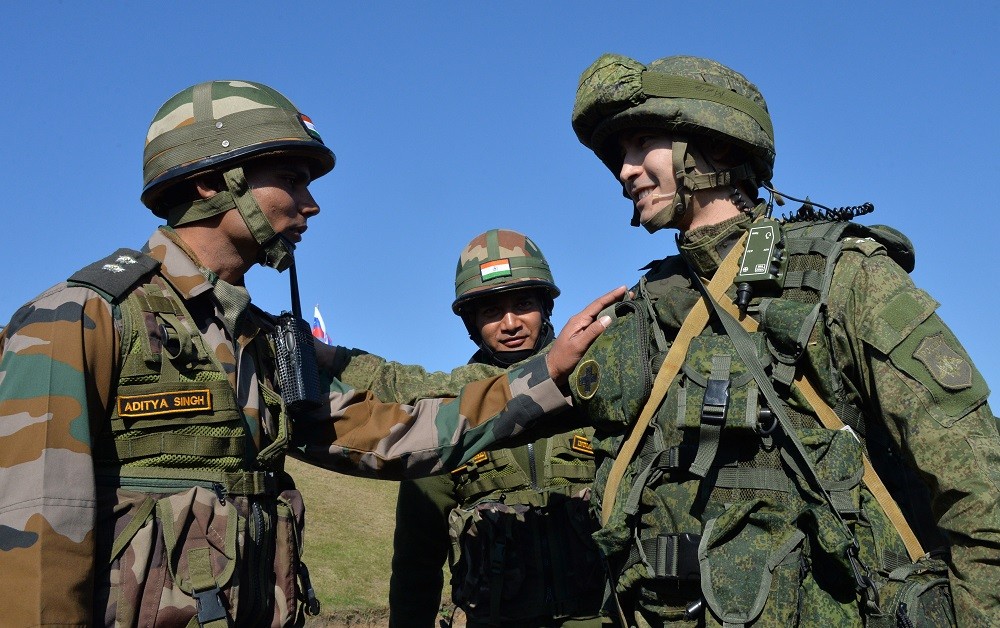
Expert explained India’s position on the Russia-Ukraine conflict
Latest
 |
| Indian and Russian soldiers during a joint exercise in 2017. (Photo: RIA) |
Dr. Satoru Nagao stated that since the beginning of the Russia-Ukraine conflict, India had repeatedly expressed that the Russia-Ukraine dispute should be resolved through peaceful talks, based on international law.
Nevertheless, New Delhi did not criticize Moscow after President Vladimir Putin’s government initiated the “special military operation” in Ukraine. At the same time, India also abstained from the resolution of the United Nations General Assembly on Russia’s actions in Ukraine on March 2nd.
According to Dr. Nagao, Russia is a significant partner of India. More than half of India's military equipment depends on supplies of repair parts and ammunition from Russia. Most of such weapons are often used in unfavorable weather conditions and therefore, repairing parts from Russia are vital to the Indian army.
More importantly, Moscow’s vote in the United Nations Security Council plays an important role for New Delhi, especially in the latter’s anti-terrorism campaign on the India-Pakistan border. In 2016, the Indian attacked terrorist camps in Pakistan-occupied Kashmir. In 2019, Indian Air Force also bombed facilities and camps considered to be terrorist hideouts inside Pakistan territory.
In the future, there is a possibility that India may attempt bigger military operations to further eliminate such threats. However, in the case of such operations, there is a possibility that the international community will ask India to stop the military operations against Pakistan.
Therefore, India needs a supportive vote in the United Nations Security Council, just like when Moscow used to vote in favor of New Delhi in the Council during the 1971 India-Pakistan War.
In addition, the friendly, cooperative people-to-people ties between India and the Soviet Union, now Russia, remained firm and influential in India's domestic politics. That is why India abstained from voting against Russia on March 2nd.
Yet, according to Dr. Satoru Nagao, the situation will change in the long run. Recently, India has continued to diversify its national defense capability, as it imported more weapons from the US, UK, France and Israel, instead of solely relying on Russian supply. 10 years ago , Russian weapons accounted for 85% of Indian Army’s procurement. Yet, by 2019, the figure has decreased to less than 40%.
Currently, Russia continues to be the largest arms supplier to India. Nevertheless, in the future, it is going to change and perhaps, come with it New Delhi’s perception of its relations with Moscow.
Moreover, the US has gradually changed its stance into supporting India’s anti-terrorism operation on Pakistan’ soil. Recent joint statements of US-India, Japan-India and Quad Foreign Ministers’ meetings over the month have come to support India’s efforts on anti-terrorism.
Lastly, Moscow is reinforcing its relations with Beijing, the latter considered by New Delhi to be its biggest security threat. At the same time, Russia continues to export weapons to Pakistan and supply the country with MI-35 attack helicopters. In addition, the engine of the China-Pakistan joint development fighter jet JF-17 is a Russian product. Therefore, it is possible the India-Russia relations will continue to witness major changes in the future.

















